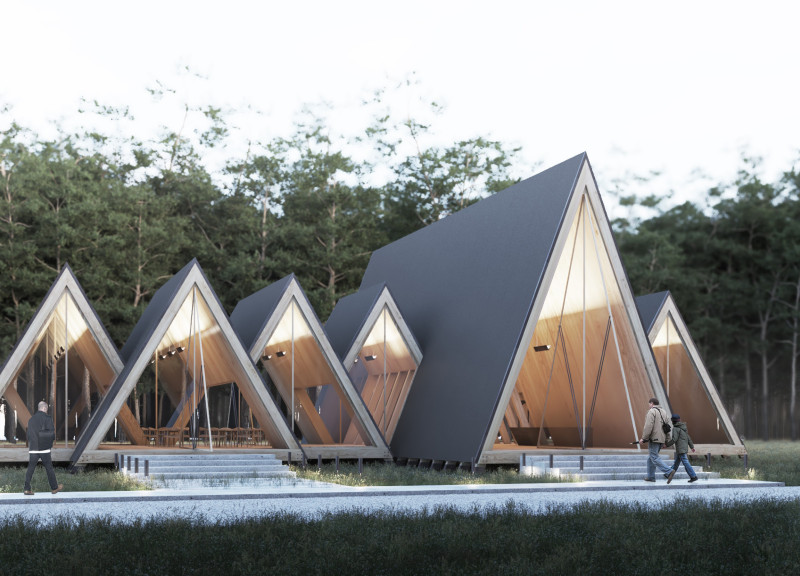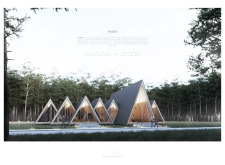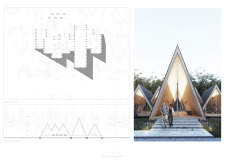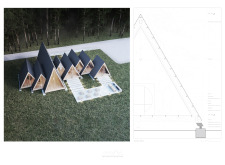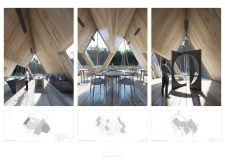5 key facts about this project
Modular Design and Interaction with Nature
The Tent employs a modular architectural form, consisting of triangular units that create an organic interplay with the landscape. Each module is designed to be adaptable, facilitating configurations that can accommodate different activities and gatherings. This flexibility is a key feature, allowing the space to serve diverse functions such as educational programs, workshops, and community events. The design not only promotes usability but also emphasizes collaboration and interaction among visitors.
Materiality is a fundamental aspect of the project, with the predominant use of engineered wood and dark-painted metal sheathing. The choice of materials enhances the structural integrity while maintaining a connection to the natural environment. Large glass windows are strategically placed to optimize views and daylight, creating a seamless transition between indoor and outdoor spaces. Additionally, the incorporation of sustainable practices, such as energy-efficient systems and eco-friendly materials, reinforces the project's commitment to environmental stewardship.
Sustainability and Architectural Innovation
The Tent stands out for its emphasis on sustainability, integrating features such as solar panels, rainwater harvesting systems, and a passive building design. These elements are designed to minimize the ecological footprint of the structure, promoting a responsible approach to architecture. By harmonizing with its surroundings, the project aligns with contemporary trends in sustainable architecture, catering to increasing environmental awareness among users.
The outdoor pathways and landscaping around the building further accentuate the connection to nature. The design encourages visitors to explore the natural landscape through thoughtfully planned routes, enhancing the overall experience. This connection serves not only functional purposes but also fosters an appreciation for the environment, making it an integral part of the visitor experience.
The Tent encapsulates a modern interpretation of a visitor center, merging architectural innovation with environmental consciousness. Through its unique modular design and sustainable practices, the project significantly contributes to the discourse on responsible architecture. For further insights into this architectural endeavor, interested readers should explore the architectural plans, sections, and design details that illustrate its unique characteristics and execution.


